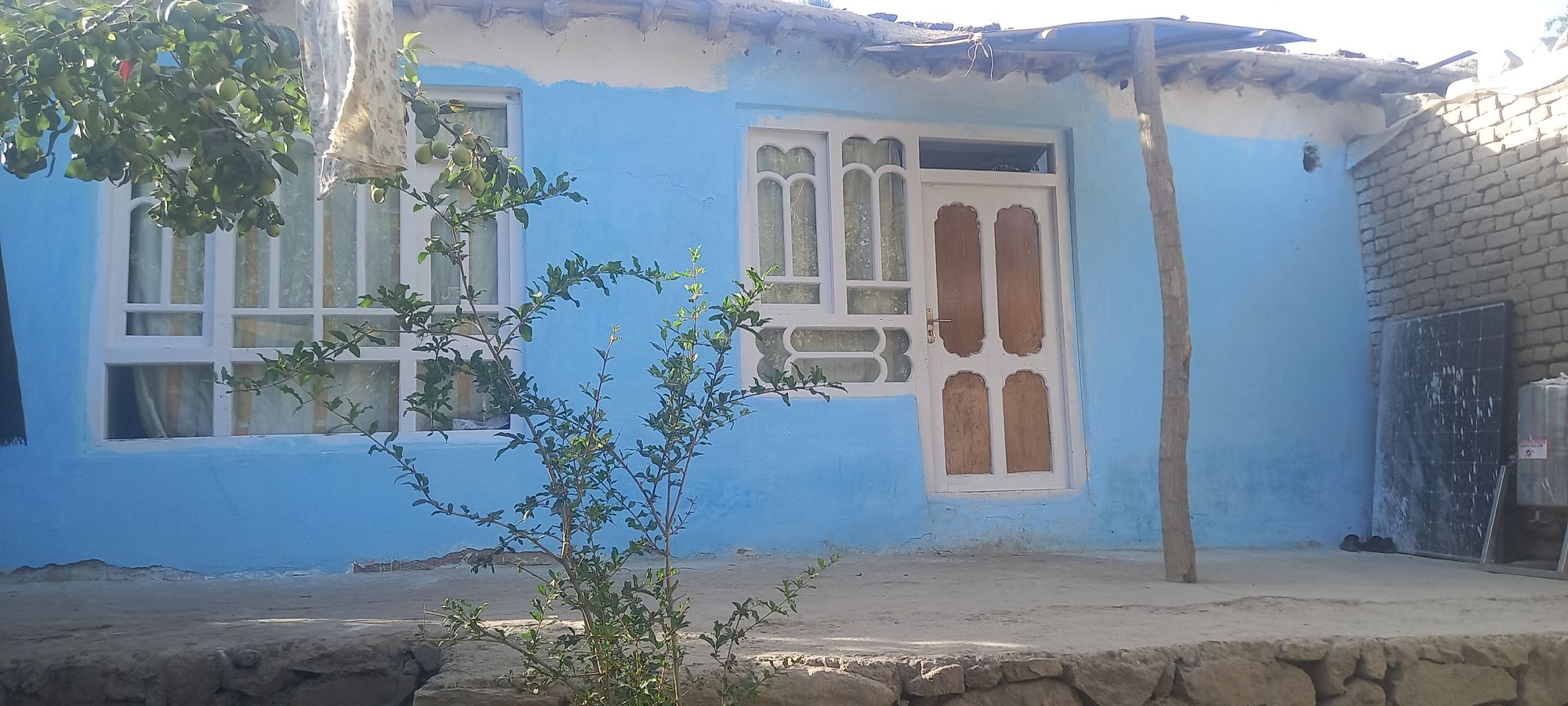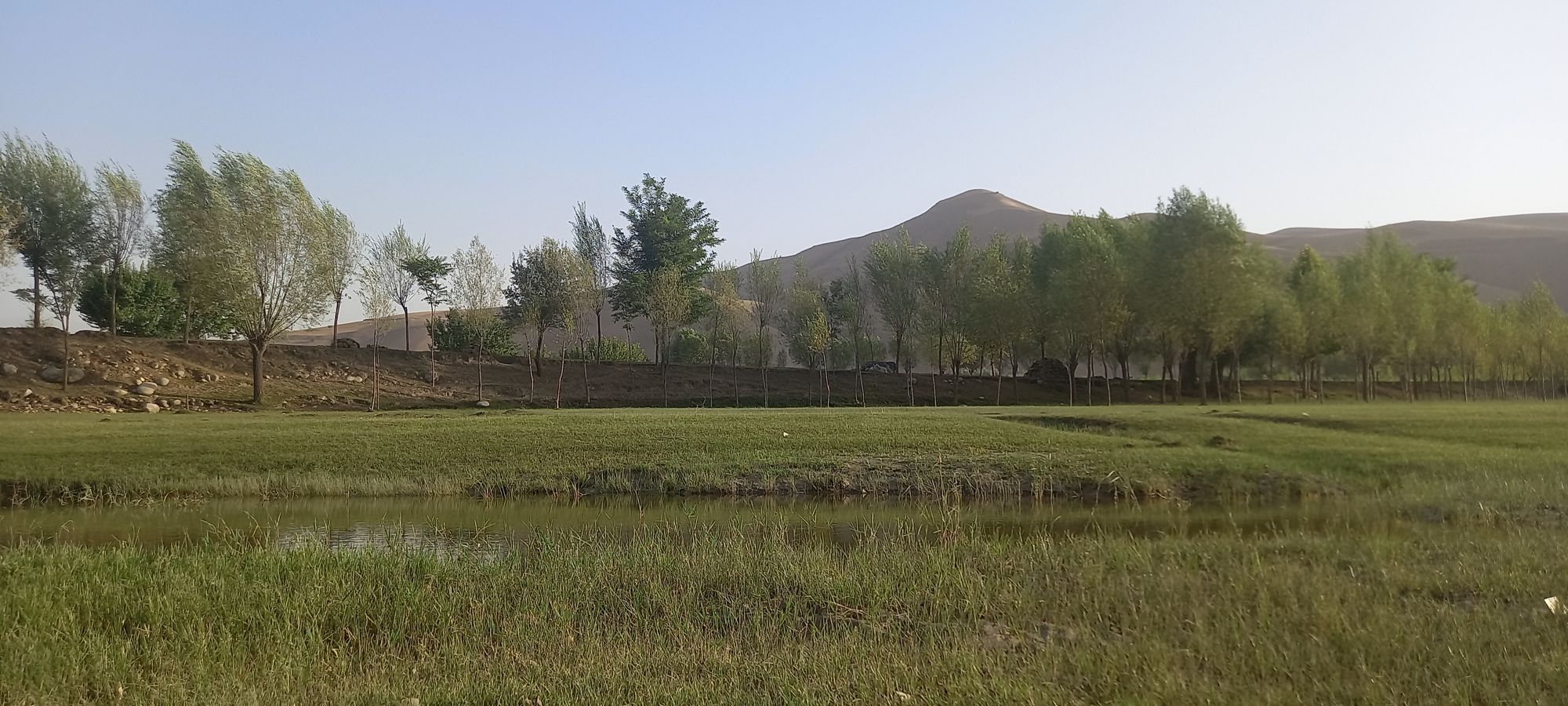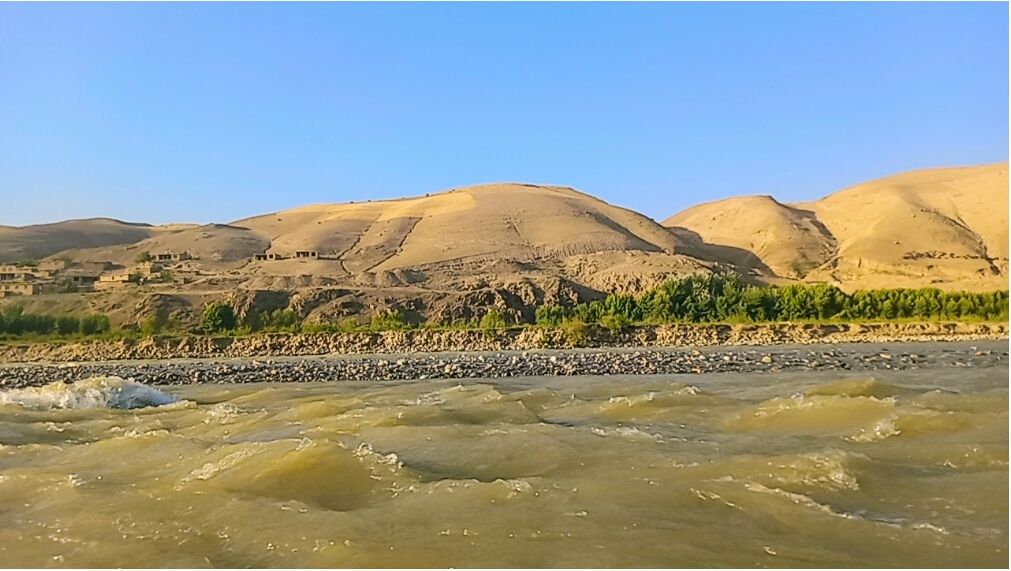Afghan Journalist Eyes Bleak Future
Mushtari Mashal worked hard to get a degree in journalism, a profession she has been passionate about since childhood, but despite her hard work she is still unemployed.

Written by Shabana Farahmand
QARA QOZI, BADAKHSHAN — Afghanistan’s collapse to the Taliban in August of 2021 vanished the hopes and desires of many in addition to the destruction of the 20-year achievements of the republic era. Via this report, I explain the dead hopes of Mushtari Mashal, a journalism graduate who considers the collapse of the previous government as the collapse of her own desires.
I have known Mushtari since she became a university student, a girl with big eyes and light brown skin. Her eyes are the signature of a girl from the mountains of Afghanistan’s northeastern Badakhshan province. A girl who has been born in the mountains, from where she inherited resilience and stability. Accepting her invitation, I head towards her home which is located alongside the Kokcha River. Her house couldn’t be in a better spot, the beauty of the mountains on one side, the river and its green outskirts on the other.
The Kokcha river originates from the glaciers of Karan and Manjan district and runs through Badakhshan including Faizabad, the provincial capital before joining the Amu River in the neighboring Takhar province.
As I get closer to her house, I can see her waiting for me. Mushtari has a simple but clean home that reflects her skill in decoration and evokes a nostalgic and dreamy atmosphere, a fantasy land.
Mushtari was born in 1996 and lives with her parents, two sisters and four brothers. She walked two and a half hours to school all 12 years it took to graduate, studied under hard circumstances and overcame one challenge after another.
“Our teachers were not professionals, nor did we have proper tools to facilitate our education. But the interesting part for me was the good friends that I made and the knowledge that I gained from that period,” Mushtari says as she recounts her memories of school.
Although Mushtari was lucky enough to get a bachelor’s degree, school remains a dream for millions of Afghan girls who are now barred from seeking education. Nearly a year since the Taliban took over, schools for girls above 6th grade remain closed in most of Afghanistan. Read Alive in Afghanistan’s articles on Education for more information about the situation of education in Afghanistan.

Mushtari also remembers corruption as a norm in the previous Afghan government. She smiles sadly saying, “The nepotism, connection-based selection always caused me to get lower scores than I deserved.”
Mushtari got the highest score in 11th grade, but the next year, a classmate who was one of their teacher’s daughters got the highest score. Although she complained to the school, no one heard her.
“When I was going through the Kankor exam - a university entry exam in Afghanistan - I was scared of failing,” Mushtari says.. But her family paid no attention to her struggles or the upcoming exams. "The lack of support from my family made me completely lose hope but I was afraid of failing and wanted to succeed at any cost.”
“My hands were shaking when I was typing my ID number in the searchbox of the Ministry of Education’s website for my results. I had a strange feeling, restless and scared but not hopeless.”
Ms. Mashal scored 200 out of 350, and was selected to study at Badakhshan University’s Journalism Faculty but no one in her family was excited , despite the fact that she was the only student admitted to a university from their entire school that year.
“It affected me a lot psychologically, but I ignored it,” Mushtari says.
“I was so happy I felt like I had wings; because I knew that only books and knowledge can give wings to human beings and I was succeeding in life’s twisted path. I let my family know and they also became happy."
Mushtaris parents did not go to school, but when she was accepted to university they were very encouraging.
"My father told me that he will take care of all my expenses. My older brother and sister didn’t go to school, my other sister was betrothed after finishing high school although she really wanted to study and only one of my brothers and I went to university,” Mushtari recounts.
Being selected for journalism was not an accident. Mushtari has been interested in becoming a journalist since she was a child.
“I used to listen to news reports on the radio before TV became a household commodity in our country,” Mushtari says, adding that she loved narrating, and would volunteer to read news at any agency that would give her a chance to do so.
Understanding her interest in news programs, her father borrowed some money and bought her a black and white TV when she was still a child to watch the news and other related programs.
“Following programs like Farahnaz Frotan’s challenging question and answer program on Ariana TV or investigative reports by journalists like Anisa Shaheed stimulated my adventurous and curious side. Their ability, zealousness and courage gave me courage, and I felt proud somehow,” Mushtari says.
Mushtari says the Afghan female journalists listed above are part of the reason she chose to become one, “So that I can be the voice of the people and reflect the injustices in my community to the world.”


According to her, those injustices include marrying off underage girls in her village, the village neighboring theirs not allowing their girls to go to school, forced marriages and the soaring poverty.
“I wanted to become a journalist to reflect what was going on in the underbelly of my village, city and the country, the truth,” Mushtari says.
Mushtari recounts the years of studying in university as the best period in her life, “I was acquainted with people from all walks of life, who were different from me in every perspective, be it beliefs, characters, the clothes they wore. They played a major role in my development, and I learned a lot from them.”
“Part of our practical work during my university years was to visit local media agencies in Badakhshan. I found the local media here very disorganized, underpaid and their views were biased against women. Being viewed as an object was not just limited to media agencies she visited. Her walks to and from the university were rife with sexual overtones from men calling her names, to commenting on her clothes, and her walk.
But she kept quiet, didn’t react and didn’t let it show that she had been affected, “It did break me on the inside,” she says.


Sexual harrassment towards women in Afghanistan has been an issue for a long time. According to a report by the Afghanistan Analysts Network in 2017, “Afghan women and girls often quietly endure harassment, including sexual harassment. Speaking out brings with it the possibility of their honour being called into question, and could lead to further restrictions being placed on their lives.”
The report cited a survey conducted by the Women and Children’s Legal Research Foundation, based in Afghanistan in 2015 which indicated that 90 per cent of the 346 women interviewed in seven provinces, had faced harassment "at least once in public spaces, 87 per cent had experienced it in their workplaces and 91 per cent in educational institutions.”
Mushtari says she applied to many agencies after she graduated but was rejected because she had no work experience and lacked personal connections within the agencies. She has been away from journalism for some time, and thinks that there is no market for journalism in her province, and believes the public’s perspective towards female journalists is biased against them because of their gender. Her biggest dream now is to open a restaurant close to her home.
“I would like to have a place where women, men and children can go. I want to build a library within the restaurant so clients can read books if they have time for it,” Mushtari says.
“My biggest hope as a child was to have a job so that I could help my family. That desire has yet to be fulfilled,” Mushtari says, her dreams of becoming a journalist and lightening her mother’s financial burden have yet to become reality.
Mushtari’s father is a farmer and her mother sells milk from the livestock they keep.
“Mushtari has been a hard worker since childhood,” Mushtari’s mother tells me.
“I was very happy when she was accepted to study in university. I am illiterate myself, but I wanted all my children to study,” Mushtari’s mother says.
To find out more about the situation of women and girls in Afghanistan, read Alive in Afghanistan’s articles about Women and Girls.
